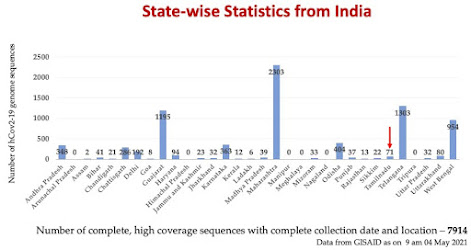Year 2020
The year 2020 got famous atleast a decade ago when Dr. Kalam, the former President of India articulated his vision for India to be achieved in 2020.
The year indeed began with its own charm, as with any new year - lots of plans, dreams and hopes. The visit of Dr. Laksh from NUS as part of a research collaboration with a colleague at SEEE had spurred interest in newer perspectives of enhancing Teaching-Learning, The taking up of responsibility for coordinating IIE-B-2020, Getting through with the DBT center for Bioinformatics proposal - these were some of the plans intertwined with dreams and hopes with which 2020 began.
January primarily went in preparing for the DBT center presentation - submitting documents coordinating to find collaborators for the National Network Project etc. A hereculean task indeed. The presentation happened in February - I along with Dr. Thamotharan and Dr. Ganesh made the presentation at Delhi before a panel of experts. The immediate comment we got from the panel was that : this is one of the best presentations! During lunch, one of the panel members encouraged us to further collaborate with people world over so that more meaningful work can be done. Later, the news that trickled was that out of over 600 proposals from the entire country, 40 were shortlisted and called for presentation - and all of them.would be funded! (Though, we are yet expecting the sanction order!)
Comes March, with Covid19 marching into every country. India enforced lockdown from March 23, and hence the campus was closed. 2020 turned out to be a terrible year for the world (and for the family - with the loss of my cousin succumbing to Covid 19). Under the direction of our Director, however, a team of us worked on checking the potential of molecules in traditional formulations for their effectiveness against Covid19. Some molecules indeed show potential - yet to get funds for verifying it experimentally (proposals have gotten rejected).
With the university closed down, we geared up for online exams for students - the whole of April went in it - questions and evaluation etc. DBT continued to ask further documents revision of budget all through April and May and these went on parallel tracks.
The Teaching-Learning newsletter saw its first issue in May - with a few like-minded people writing for it and forwarded by Deans in the school. The hope is that this newsletter will be a platform for sharing good practices, learning from peers of their insights and move towards scholarship in teaching-learning.
May also saw the coordination of another proposal in collaboration with Thanjavur Medical College - submitted to BIRAC - the presentation of which happened in June - and we are eagerly awaiting for the decision as well.
In parallel, June and July went in getting students to enrol for the new MSc Bioinformatics program, preparing submitting for necessary approvals from academic council etc, and as well in gearing up for the upcoming online semester.
The online semester began in August for the senior years and in October for the first years.
Reconnecting with an old mentor also saw some productive work in terms of manuscripts - exploring newer vistas in machine learning.
ThinQ activities:
The year began with our first workshop in Coimbatore in the Edu-Intech conference - the first of its kind - where Mo unveiled Education 5.0. This was followed by a workshop for the participants - where i was a facilitator. Later, in April, FACE academy approached ThinQ for a webinar for Engineering teachers. I co-facilitated it along with Mo and Deesh. Was attended by about 2000 engineering teachers all over the country.
IIE-A started in May and continued until October. Hectic times indeed. Starting September, i took up.an active role as the coordinator for IIE-B - starting from participant selection, inviting them, nudging facilitator preparation in thr midst of getting my own session prepping. IIE-B was conducted completely online this time - over 4 weekends in December. So, December was fully packed!
In December, our proposal (with a colleague/friend) for a startup was recommended. Awaiting further details on pursuing it.
On the family side - all is well. Viyan turned 6. He has developed an interest for reading of English story books (Enid Blyton's Magic Faraway tree helped a lot) and has slightly outgrown his obsession for dinosaurs toys. But his obsession with Dragons remain. He has got interested in video games (Hungry Shark, Hungry Dragon, Jurassic Fight etc). Trying to get him hooked into reading Tamil books and drawing.
Looking back, the year has been productive one - with lots of learning, and laying the steps for a lot of plans! Hoping for more productivity and learning in the upcoming year! Look forward you 2021!!!

